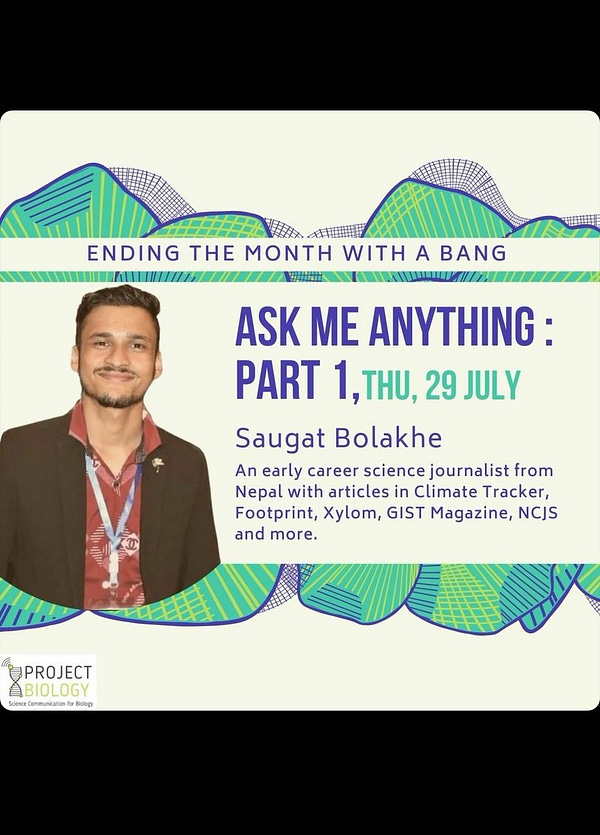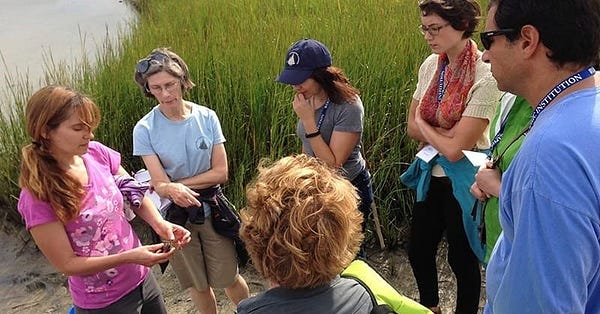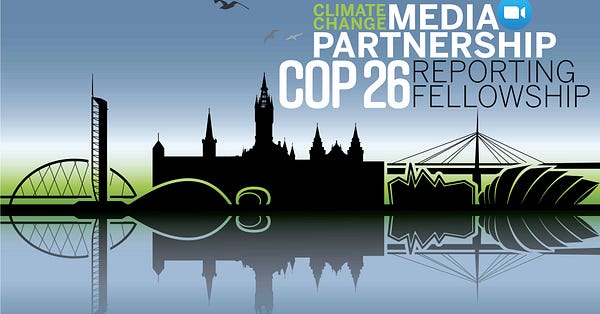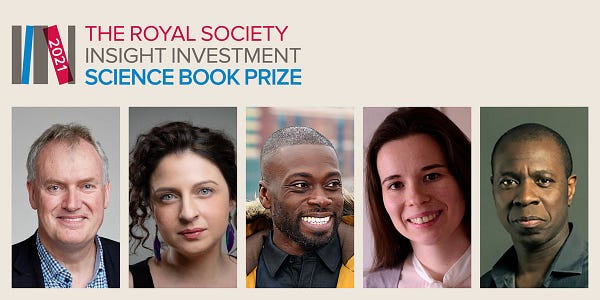✍️Science Writing News Roundup #54 (July 27, 2021)
So you landed your first assignment... now what?
Congratulations to the Knight Science Journalism Program Project Fellows! Twenty-one distinguished journalists will pursue a diverse range of projects related to science, health, technology, and the environment. Top (l to r): Nina Berman, Anna Kuchment, Karen Hao, Emily Mullin, Emily Willingham, Hilke Schellman; Middle (l to r): Rebecca Boyle, Jessica Aguirre, Virginia Gewin, Natasha Singer, Julia Rosen, Jeremy Hance, Sushma Subramanian, Asha Stuart; Bottom (l to r): Jared Whitlock, Sam Bloch, Melanie Kaplan, Lauren Gravitz, Rene Ebersole, Ferris Jabr. Not pictured: Tasmiha Khan. Credit: KSJ
🕯️ Resources and tips
So you landed your first assignment... now what? Some talented and lucky folks can make the leap from science to science writing without any formal journalism training in-between. Convincing a publication to trust you to write for them is one issue, what to do once you’ve gotten an assignment is another. Here’s what to do for the latter.
Build your audience with SEO descriptions and custom URLs. Custom URLs and SEO descriptions make Google happy and give your posts a boost in search.
A simple script for your diverse source tracking needs. Ask these questions in an interview to get the data you crave!
Ready for an upgrade on your recording and transcribing processes? Check out these AHCJ member recommendations.
How do you report a story about environmental health when the scientific evidence is scarce or non-existent? “Just because we don’t have evidence doesn’t mean there isn’t some kind of causal thing going on. But it’s also true that just because there is evidence doesn’t necessarily mean that there’s causation,” says Dan Fagin, a science and environmental journalist.
When will the pandemic end? It’s been about a year since Betsy Ladyzhets started the COVID-19 Data Dispatch, a newsletter that explores the state of COVID-19 data in the U.S. She recently asked 26 reporters and communicators when they thought the pandemic might come to an end, as well as how they would take lessons from the past year into the “post-COVID” stages of their careers.






🪂 Opportunities








📹 Videos
Editing controversial and “controversial” science. There are some areas of science where the controversies are real and fierce — what was really the downfall of the dinosaurs? — and then there are scientific “controversies” ginned up for political or economic purposes. Learn how to tell the difference and how to responsibly convey that to your audience.
Science and public health in the post-pandemic age: A conversation with Joe DeRisi and Carl Zimmer. Joe DeRisi is a professor of biochemistry and biophysics at UC San Francisco, and co-president of the Chan Zuckerberg Biohub. Carl Zimmer is an award-winner New York Times columnist and the author of 13 books about science.
COVID-19, science communication and the journey from here. How has the pandemic impacted the relationship between scientists and journalists? What is the latest guidance on science communication? And what will science communication look like in a post-COVID world?
🗓️ Events
Communicating the Future: Engaging the Public in Basic Science (July 27-28, 2021)
Preprints and the Scientific Media Landscape with John Inglis, Co-founder of bioRxiv and medRxiv (July 28, 2021)
Ocean + Climate Virtual Workshop Series #3: The California Coast (Applications due Friday, July 30)
📚 Jobs and internships
Earth Science Communicator, NASA, Greenbelt, MD
Science Writer, Vital Strategies, New York, NY
Cancer Stories Officer, The Institute of Cancer Research, London, UK
Opinion and Analysis Editor, Scientific American, US-based
Media Relations/Science Writer, University of California, San Francisco, CA
Sci-comm reporter and multimedia assistant, College of Science at the University of Nevada, Reno, NV
Scientific SEO Expert, MilliporeSigma, Bedford , MA
More jobs 👉 Science Writing News Roundup #53
👉 Don’t miss any updates from the Science Writing News Roundup:
Thanks for reading. How about sharing this with a friend? Worried you missed something? See previous newsletters here. What would you like to see in the newsletter? Please send me your suggestions by replying to this email: sciencewriting@substack.com😃





